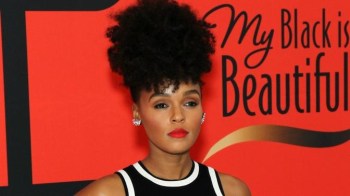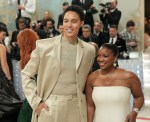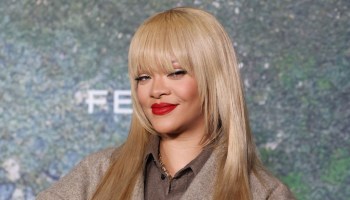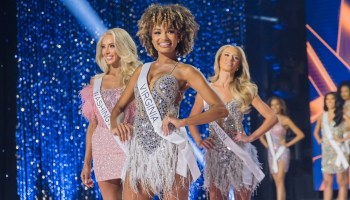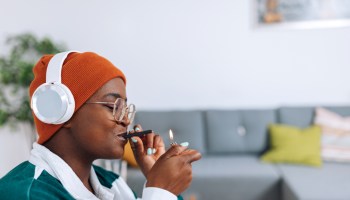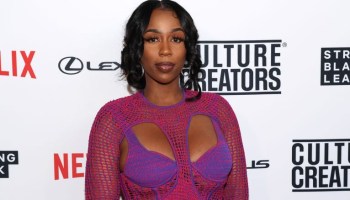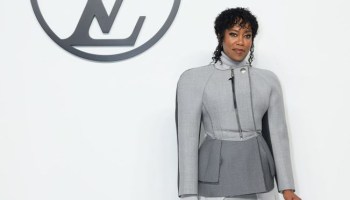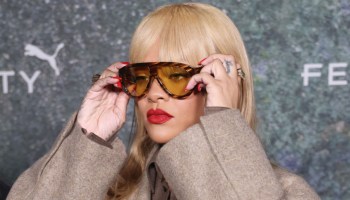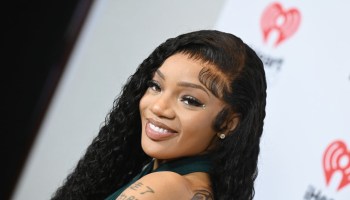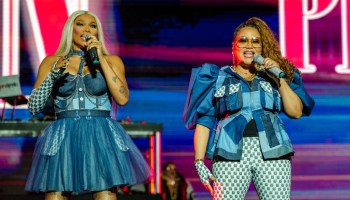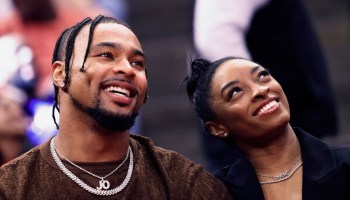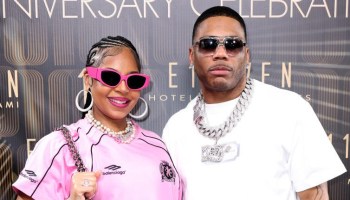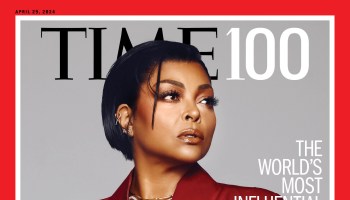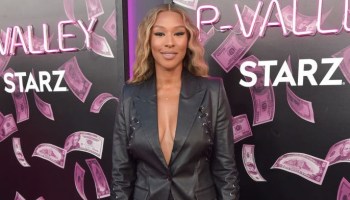Gwen Jimmere, Founder and CEO of the world famous Naturalicious, has a special determination when it comes to making things happen. In an effort to create an easier, less time consuming method to care for her natural tresses, she ended up making history by becoming the first African-American woman to have a patent for a natural hair care product. Getting the patent was not an easy task for Gwen, considering the financial challenges she had while trying to raise her son as a single parent. Today, she enjoys the success of having her products sold on the shelves of Whole Foods and on four different continents around the world. What exactly is involved in the patent process? What does Gwen’s accomplishment mean for Black beauty products? Gwen sat down with Hello Beautiful to share her story.
On how she got into natural hair care and establishing her company after being laid off
I was working at Ford in Detroit and ended up going to work at a multicultural ad agency. I had become a mother and was married at the time. One day I was watching Chris Rock’s movie, ‘Good Hair’ and saw the scene where he takes a soda can and puts it in a tub of relaxer and the can disintegrated. That was just crazy to me and I’m freaking out watching this because the same chemicals that destroyed the can goes into my body, so it was a lot to watch since I’d been relaxing my hair since third grade! That’s when I started looking for natural, organic products for my hair. The problem was they were hard to find and the actual process of hair care was way too long. Then I started experimenting with different ingredients at home and over the course of 5 months, came up with a 3 step system that takes 30 minutes – as opposed to the 2 to 4 hours it would normally take to do my hair. This meant a lot especially at the time since I was a new mom and had so much going on. Then I started sharing it with friends and family who fell in love with the product and they started sharing it with their friends and co-workers. Fast forward to 18 months later, I’m divorced, got laid-off from my job, trying to raise a two-year old son and only had $32 dollars in the bank. At that point I didn’t want to work for anyone anymore. So I took my $32 dollars and invested time into my business.
What makes her most proud of her successful company Naturalicious
It’s been two years since I’ve gotten the patent, and I come across girls or young women in their early 20’s and they start expressing how much my story inspires them and how they’re now encouraged to move on their ideas that they’ve been sitting on for years because they didn’t know what to do or wanted to protect their invention. When I hear them say that, I think to myself, ‘wow, I am the first, but I don’t aspire to be the only one’ when it comes to patenting my product.
The second thing is I’ve been blessed with a team that helps me produce all my products (which are made by hand). That team consists of people that are special-needs. It such a joy to see them light up when they come on board because its hard for them to get employment anywhere else since its perceived that they can’t do the job or they don’t qualify. So they turn that rejection into positive energy and bring their best when they come to work for me. They’re learning a skill and getting paid for it, so that’s something I’m really proud of.
Challenges of the patent process
For one, the process is very expensive – it can cost up to $20,000 (or more) through an attorney to get the patent. Second, the process can be very time consuming if you chose to do it on your own. I didn’t have the luxury of shelving out $20,000 but I said I will learn the process and get the patent on my own. What a lot of people don’t understand is trademarking and patenting aren’t the same – especially when it comes to cost. You have to teach yourself patent laws and learn a lot before you even start the process. Even though I was working from home, I had to put my son in daycare while I went to the library from 10am to 2pm, 3 times a week so that I could learn the process. It was difficult because I could’ve saved money by having him stay home with me, but it was a sacrifice that needed to be done in order to make things happen.
Her take on African-American representation in beauty product ownership
I see a lot of consumers asking, ‘Is this Black owned?‘ and we’ve become much more aware of what we’re putting in our hair and who’s behind the brand. I also see a lot of companies that are owned by Black families, but they’re not operated by Blacks. In those cases the operators don’t have our best interest at heart. Cost is also a challenge when it comes to ownership. It costs more to own the material and produce the product. That’s why its important to support Black-owned businesses, because when you do that, you’re helping us take back the control that we complain about when we see other races benefiting from those profits. But I definitely see a lot more awareness and inquiries on the integrity of Black owned products and businesses.
Gwen also co-owns and operates Pitch Proof with fellow entrepreneur, Brian Williams, that helps business owners pitch their companies for grant money. After going through their own experiences and learning that many minority-women owned business launch their brands out of personal debt (which turns out to be a struggle in paying back), they decided to come together to teach people how to pitch their brand and win grant money instead of going in debt for their business. For more information on Pitch Proof, go here.
To learn more about Gwen’s company Naturalicious, visit Naturalicious.net
DON’T MISS:
Black Owned And Proud: Naomie Harris Wears Cushnie et Ochs At Moonlight Screening In London
Korean Beauty Supply Owner Calls Police On Protestors Directing Customers To Black Owned Businesses
Gabrielle Union Launched Her Hair Care Line And Shows Off Natural Tresses
